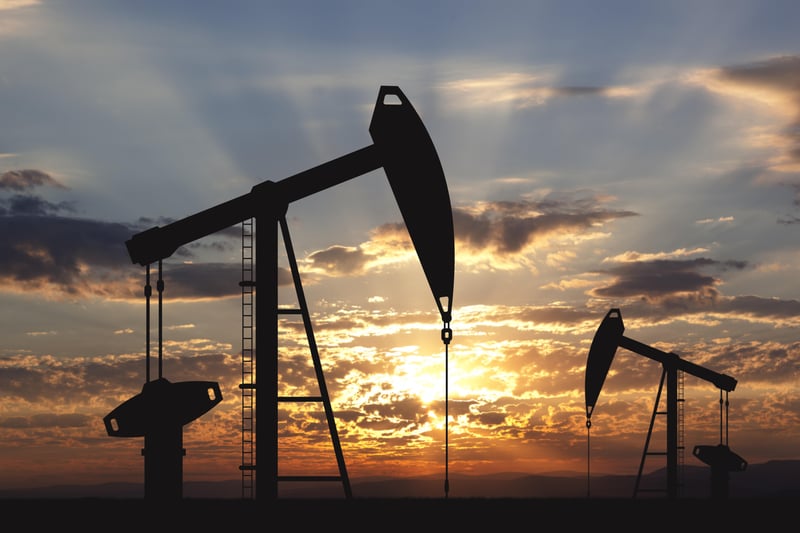Get Healthy!

- Posted May 8, 2023
Oil & Gas Production Takes Toll in U.S. Lives, Health Costs
Pollutants produced by the U.S. oil and gas industry cause thousands of deaths and cost the country tens of billions in health care expenses, a new study reports.
Nitrogen dioxide (NO2), fine particulate matter and ozone all contribute to air pollution, and all are emitted as part of oil and gas production, the researchers said.
The new study estimates that the oil and gas industry contributed to 7,500 excess deaths, 410,000 asthma attacks and 2,200 new cases of childhood asthma across the United States in 2016.
All told, oil and gas production cost the United States $77 billion annually in health care damages, when factoring in related heart and lung hospitalizations, adverse pregnancy outcomes and other illnesses.
That total cost is three times the estimated climate impact costs of methane emissions from oil and gas operations.
"These substantial impacts from oil and gas production show that there are serious consequences across the full life cycle of oil and gas, from 'well to wheels,' 'well to power plant' and 'well to furnace,'"said co-researcher Jonathan Buonocore, an assistant professor of environmental health at the Boston University School of Public Health.
"The health impacts are not just from the combustion of oil and gas,"Buonocore added in a university news release. "In order for energy, air quality and decarbonization policies to successfully protect health, they need to incorporate health impacts across this full life cycle."
The results indicate that emissions strategies that focus on end-of-pipe pollution controls -- such as in power plants, vehicles, buildings, and industry -- are only addressing part of the problem, the researchers said.
The health impacts observed in this study were largely concentrated in areas with significant oil and gas production, such as southwest Pennsylvania, Texas and Eastern Colorado, the study authors noted.
However, the health effects also extended into densely populated cities with little or no gas activity, such as Chicago, New York City, Baltimore, Washington D.C., and Orlando, Fla.
The five states with the highest impacts from the petroleum industry were Texas, Pennsylvania, Ohio, Oklahoma and Louisiana, and all those host significant oil and gas activity.
But Illinois and New York -- states that produce very little oil and gas -- still landed in the 6th and 8th spots, according to the report.
"The fact that air pollution and health impacts cross state boundaries indicates a strong need for regional to nationwide coordination,"said senior study author Saravanan Arunachalam, a research professor at the University of North Carolina Institute for the Environment.
"States that have the highest emissions are not necessarily always the ones with the highest health risk due to these emissions, although Texas ranks first in both,"Arunachalam said.
Oil and gas production is nearing record levels in the United States, despite efforts to transition from fossil fuels to clean energy, the researchers noted.
There's extensive research on methane emitted by this industry and its effect on the climate, but few studies have measured the health effects of other air pollutants produced by oil and gas production, they added.
To capture the health impacts, the investigators created an advanced model that better captures the chemistry of emissions from the oil and gas sector.
Among the three pollutants, NO2 was the highest contributor to the overall health impacts, producing 37% of the estimated effects. This was followed by ozone at 35% and fine particulate matter at 28%.
NO2 contributes to the formation of fine particulate matter and ozone, so strategies to reduce it could be most effective in reducing health impacts, the team noted.
The study results suggest that policies targeting emissions from petroleum, such as forthcoming methane regulations from the U.S. Environmental Protection Agency, may produce immediate and significant air quality benefits to human health, along with significant climate benefits.
The findings were published online May 8 in the journal Environmental Research: Health.
The researchers urged policymakers to consider these additional benefits as they weigh future emission-reduction strategies.
"Curbing oil and gas emissions is one of the fastest, most cost-effective ways to reduce methane and other air pollutants, which improves air quality, protects public health and slows climate change,"said co-researcher Ananya Roy, a senior health scientist at the Environmental Defense Fund.
"It's critical that the U.S. Environmental Protection Agency strengthen and finalize its proposed oil and gas methane rules as quickly as possible,"Roy added. "These proposed rules should build from leading state approaches in Colorado and New Mexico and go further to end pollution..."
Future studies should focus on learning more about health impacts across the full life cycle of oil and gas production, as well as the potential benefits of additional pollution control strategies, the researchers said.
"There are technologies and strategies to reduce methane leaks, emissions from compressor stations, or emissions from other sources, such as ponds and dehydrators,"Buonocore said. "Each of these strategies will have different effects on the levels of different pollutants that get emitted."
Future research also should consider the health impacts of emissions that the study did not examine, such as benzene and formaldehyde, Arunachalam added.
"Exposure to these pollutants, which have been detected near oil and gas wells, can cause cancer and several other adverse health impacts, and quantifying them will demonstrate even higher public health benefits of controlling emissions from this sector,"Arunachalam said.
More information
The U.S. National Institutes of Health has more on the health effects of air pollution.
SOURCE: Boston University, news release, May 8, 2023






